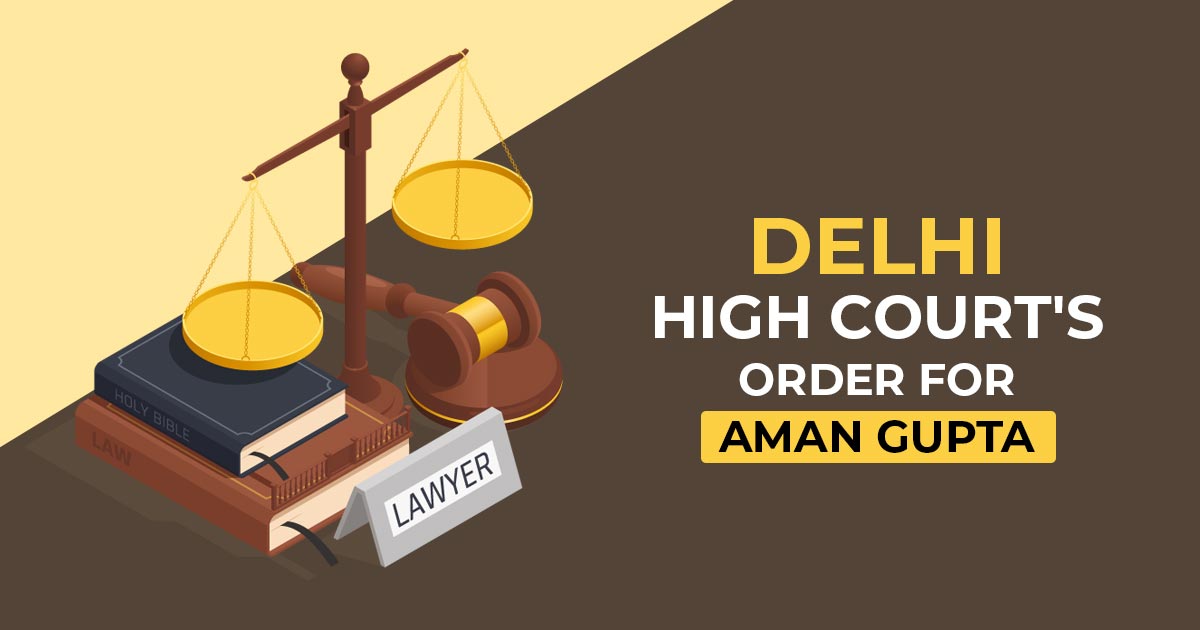
Delhi High Court witnessed that providing the bogus invoices along with the e-way bills for the GST evasion counted as an economic offence that comprises the loss to the public exchequer that required to be viewed in a serious way.
When refusing anticipatory release to a chartered accountant accused of fraud and GST evasion by forgery of bogus invoices issued by fictitious firms, Justice Amit Bansal made the statement.
“In the present case is not just relating to the applicant having duped the complainant of a huge sum of money, it also involves allegations of issuing fake invoices and e-way bills for the purposes of GST evasion, which is an economic offence involving loss to the public exchequer. Such offences need to be viewed seriously as the same pose a threat to the economy of the country,” the court stated.
Umang Garg filed the complaint alleging that he hired the CA to manage the books of accounts of his company M/s Ulagarasan Impex Pvt Ltd.
He alleged that CA had induced him to bring the goods or material via distinct firms post which he initiated buying the identical via bills or GST e-way bills.
Garg claimed that the Chartered Accountant (CA) forced him to make payments for goods into various accounts under different names, and the CA was handling these payments independently. Later, Garg discovered that these supposed companies were fraudulent and didn’t exist.
According to the First Information Report (FIR), the CA and his associates allegedly swindled Garg out of Rs. 2,81,99,475 by creating fake, counterfeit, and fictitious companies. They received payments, including GST, in multiple accounts for the purchased goods but never paid the GST.
Read Also: What is the Future Scope for Chartered Accountants
The court rejected the CA’s request for anticipatory bail, pointing out that the CA’s only explanation was his willingness to deposit Rs. 75 lakhs and resolve the issue through mediation for the remaining amount.
“It appears that the intent of the applicant was to secure interim protection upon payment of Rs.75 lakhs to the complainant and continue enjoying the said interim protection during the pendency of the mediation proceedings. It is to be noted that the interim protection was not granted to the applicant on merits but on account of the possibility of settlement. Once the mediation proceedings have ended as ‘not-settled’, the application of the applicant has to be considered on merits,” the court said.
It further said that evidence gathered during the inquiry revealed that the CA was in charge of the questioned firms and that he had received an amount of Rs. 3.5 crores from Garg.
“In the present case, for the aforesaid reasons, the custodial interrogation of the applicant is required. Considering the overall facts and circumstances of the case and the fact that the applicant needs to be confronted with various documents and statements of the witnesses, and the allegations levelled against him are serious, being in the nature of forgery and GST evasion by creating false invoices issued by non-existent entities, no grounds for grant of anticipatory bail to the applicant are made out,” the court said.
| Case Title | Aman Gupta Vs. State |
| Citation | BAIL APPLN. 3408/2022 and CRL.M.A. 23659/2022 |
| Date | 06.09.2023 |
| Petitioner | Mr.Siddharth Aggarwal, Senior Advocate with Mr.Satyam Thareja, Ms.Vasundhara Nagrath Ms. Arshiya Ghosh, Advocates |
| Respondent | Mr.Ritesh Kumar Bahri, APP for State SI Neeraj, PS.KNK Marg Mr.Tanmay Mehta, Mr.Vijay Kasana Mr.Kshitij Chhabra Mr.Chirayu Verma Advocates for Complainant |
| New Delhi High Court | Read Order |